Betta fish are popular pets that require a well-maintained aquarium to thrive. While many people focus on the water quality and temperature of the aquarium, it is also important to consider the plants you choose to include in the tank. Some toxic plants for betta fish are here that you need to avoid using since it ensures the health and safety of your pet.
It includes a long list of plants, such as the English lily, Pothos, Peace Lilly, and Philodendron. All they add a beautiful touch to any aquarium; it is toxic to betta fish. It can cause digestive issues, vomiting, and diarrhea.
Some of them cause irritation to the skin, mouth, and eyes and lead to digestive issues if ingested. Therefore, you must refrain from putting English Ivy in betta fish tanks.
The Hidden Dangers: Toxic Plants for Betta Fish Owners to Avoid
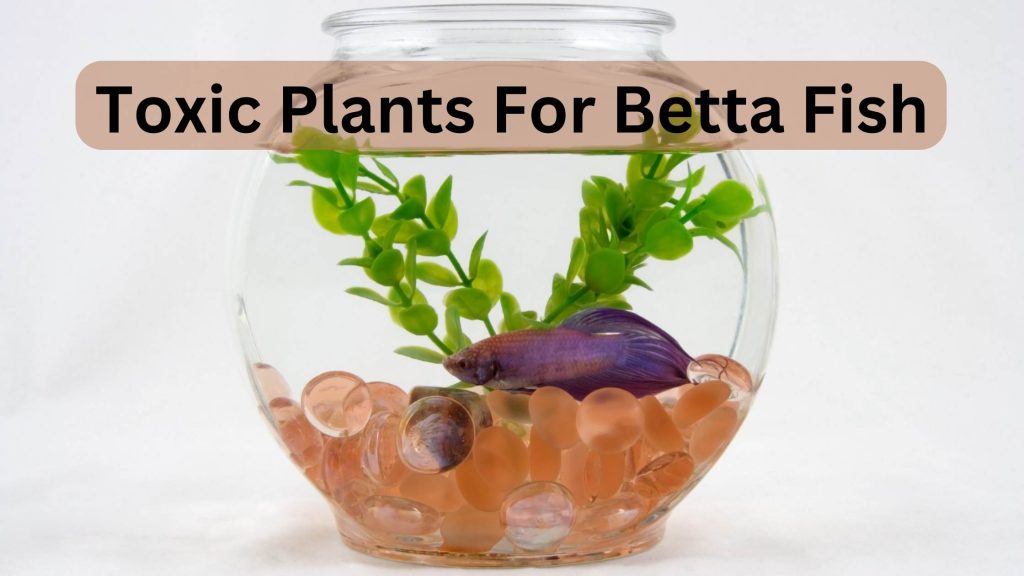
Why do We need to Avoid Toxic Plants? Avoid toxic plants in betta fish tanks to ensure the health and safety of your pet. Betta fish are sensitive creatures that can be easily affected by environmental changes.
Toxic plants can cause irritation, illness, and even death in betta fish. By choosing non-toxic plants for your aquarium, you can help your betta fish thrive and live a long and healthy life.
When choosing plants for your betta fish tank, knowing which plants are toxic and which are safe is important. Avoiding toxic plants can help keep your betta fish healthy and happy.
Consider non-toxic options like java fern, anubias, and marimo moss balls to create a beautiful and safe environment for your pet.
You can also check Best Plants For Betta Fish.
List of plants that are toxic for betta fish
Peace Lilies
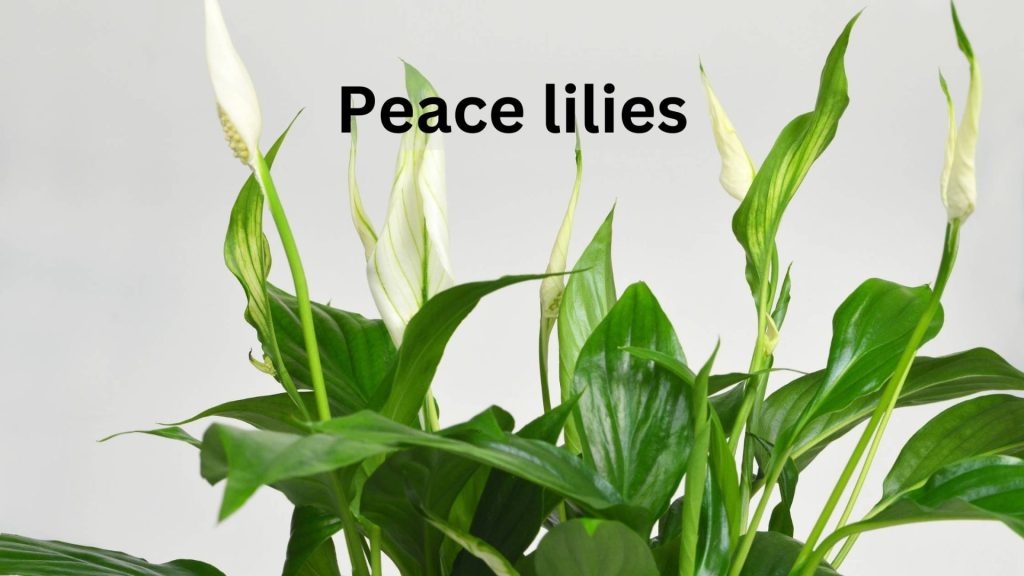
Peace lilies can be a great addition to a betta fish’s aquarium as they help improve the water quality by absorbing nitrates and other harmful chemicals.
However, it’s important to remember that betta fish are sensitive to changes in water chemistry, so if you’re planning to add a peace lily to your betta fish’s aquarium, you need to ensure you don’t disturb the balance of the water.
Additionally, you should ensure that the peace lily is planted, so the leaves and roots are not submerged in the water. This is because the plant can rot if it’s constantly in water, which can release harmful chemicals into the water that can be harmful to your betta fish.
Peace lilies can be a beautiful and beneficial addition to a betta fish’s aquarium. Still, you need to make sure you take the necessary precautions to ensure the health and safety of your betta fish.
Pothos
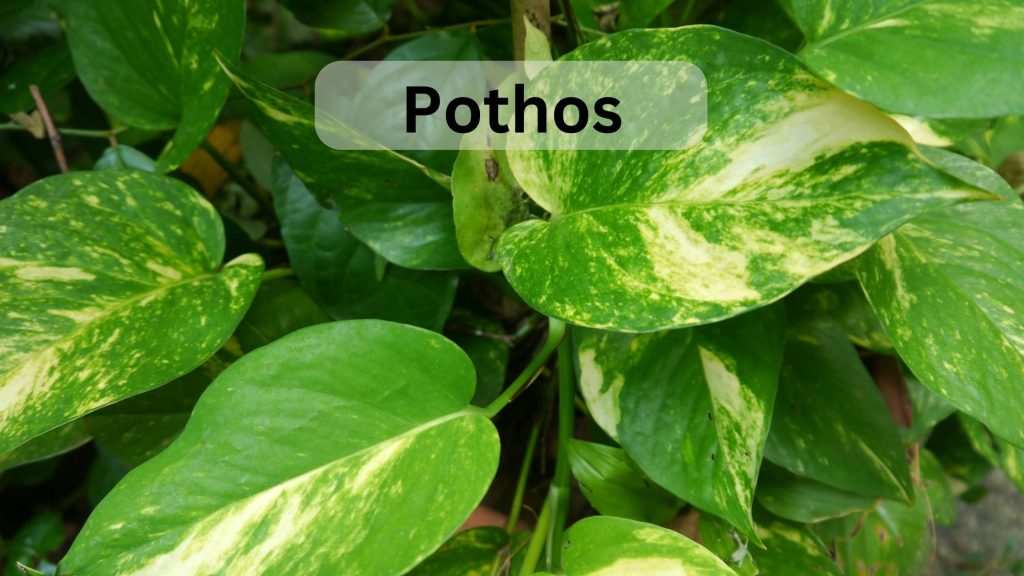
Pothos, also known as Devil’s ivy, is toxic to betta fish if ingested. The leaves of pothos contain insoluble calcium oxalates, which can cause irritation and swelling in the mouth and throat of betta fish, making it difficult for them to breathe. In severe cases, ingestion of pothos can lead to asphyxiation and death.
It’s important to note that pothos is not toxic when grown hydroponically or in soil separate from the betta fish’s aquarium.
However, if you choose to grow pothos in the same container as your betta fish, you must ensure the plant is planted so the leaves and roots are not submerged in the water. This is because if the plant is constantly in water, it can rot and release harmful chemicals into the water that can harm your betta fish.
Overall, it’s recommended to avoid planting pothos in the same container as your betta fish to ensure their health and safety.
Dieffenbachia
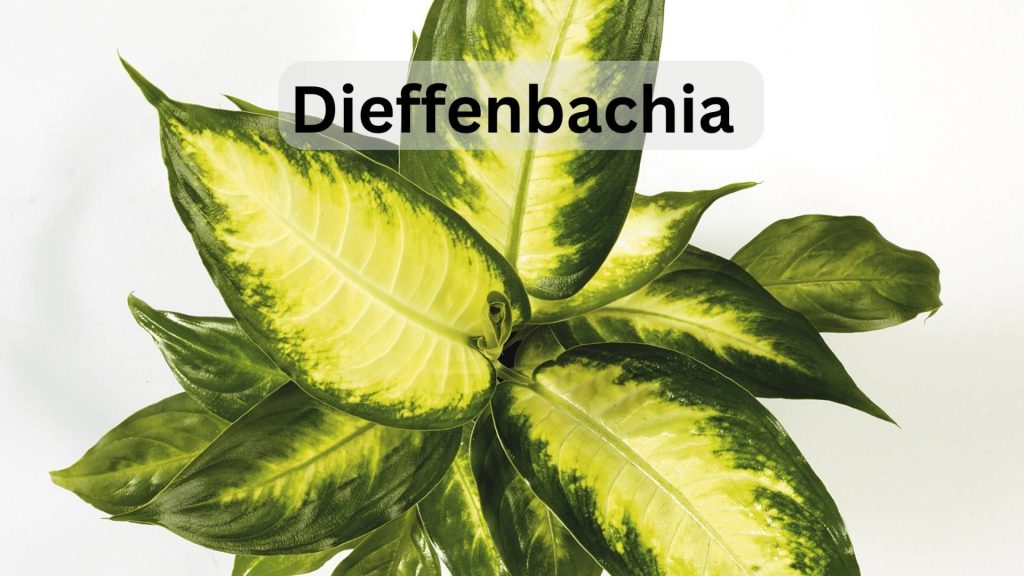
Dieffenbachia, or Dumb cane, is toxic to betta fish if ingested. The leaves of Dieffenbachia contain insoluble calcium oxalates, which can cause irritation and swelling in the mouth and throat of betta fish, making it difficult for them to breathe. In severe cases, ingestion of Dieffenbachia can lead to asphyxiation and death.
It’s important to note that Dieffenbachia is not toxic when grown hydroponically or in soil separate from the betta fish’s aquarium.
However, if you choose to grow Dieffenbachia in the same container as your betta fish, you need to ensure the plant is planted so that the leaves and roots are not submerged in the water. This is because if the plant is constantly in water, it can rot and release harmful chemicals into the water that can harm your betta fish.
Overall, avoiding planting Dieffenbachia in the same container as your betta fish is recommended to ensure their health and safety. If you notice any signs of illness in your betta fish, such as difficulty breathing or unusual behavior, you should contact a veterinarian immediately.
Hygrophila Balsamica
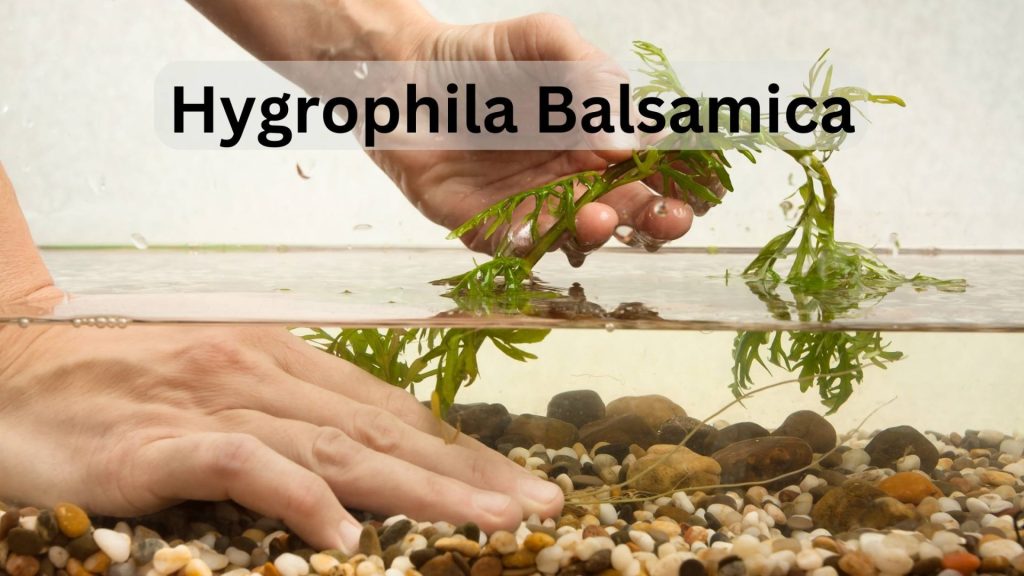
Hygrophila balsamica, or Indian waterweed, is not toxic for betta fish. It can be a great addition to a betta fish’s aquarium as it provides a natural habitat and hiding place for the fish. Additionally, hygrophila balsamica helps improve water quality by absorbing nitrates and other harmful chemicals.
However, it’s important to remember that betta fish are sensitive to changes in water chemistry, so if you plan to add hygrophila balsamica to your betta fish’s aquarium, you must ensure you don’t disturb the balance of the water.
Additionally, you should ensure the plant is planted, so the leaves and roots are not submerged in the water. This is because the plant can rot if it’s constantly in water, which can release harmful chemicals into the water that can be harmful to your betta fish. You must avoid using toxic plants for betta fish.
Overall, hygrophila balsamica can be a beneficial addition to a betta fish’s aquarium. Still, you need to make sure you take the necessary precautions to ensure the health and safety of your betta fish.
Water Hemlock
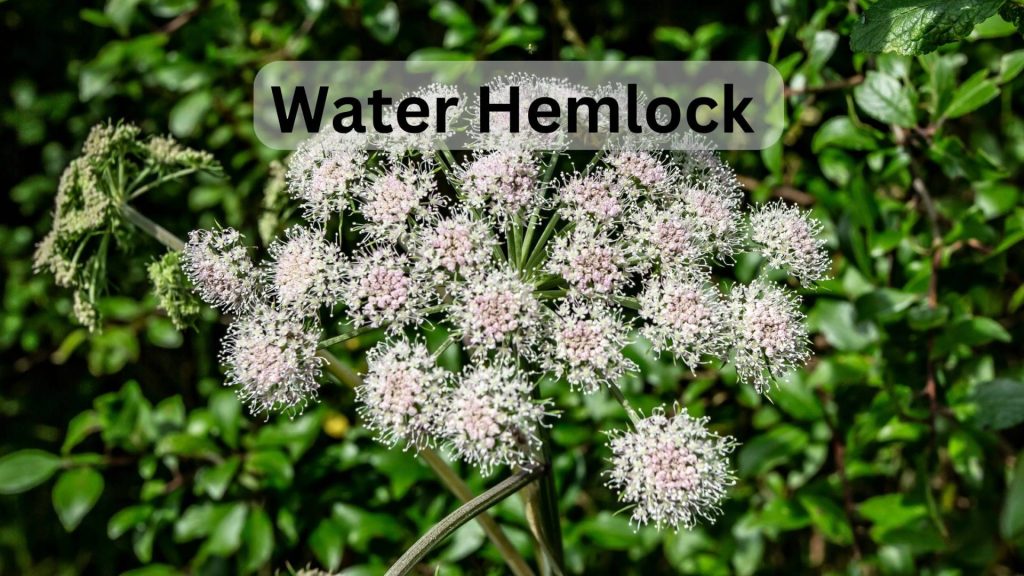
Water hemlock, also known as cowbane, is a highly toxic plant for humans and animals, including betta fish. All parts of the plant contain cicutoxin, a powerful neurotoxin that can cause seizures, convulsions, and death. If a betta fish ingests water hemlock, it can lead to rapid and severe symptoms, including paralysis, respiratory failure, and death.
It’s important to note that water hemlock is not typically found in betta fish aquariums, as it’s a wild plant that grows in damp soil, marshes, and other wet areas.
However, if you have a betta fish in an outdoor pond or if you live in an area where water hemlock grows naturally, you need to be aware of the potential risks and take steps to keep your betta fish safe.
Contact a veterinarian immediately if you suspect your betta fish has ingested water hemlock. Prompt treatment is essential to minimize the risk of severe health complications and death.
Philodendron
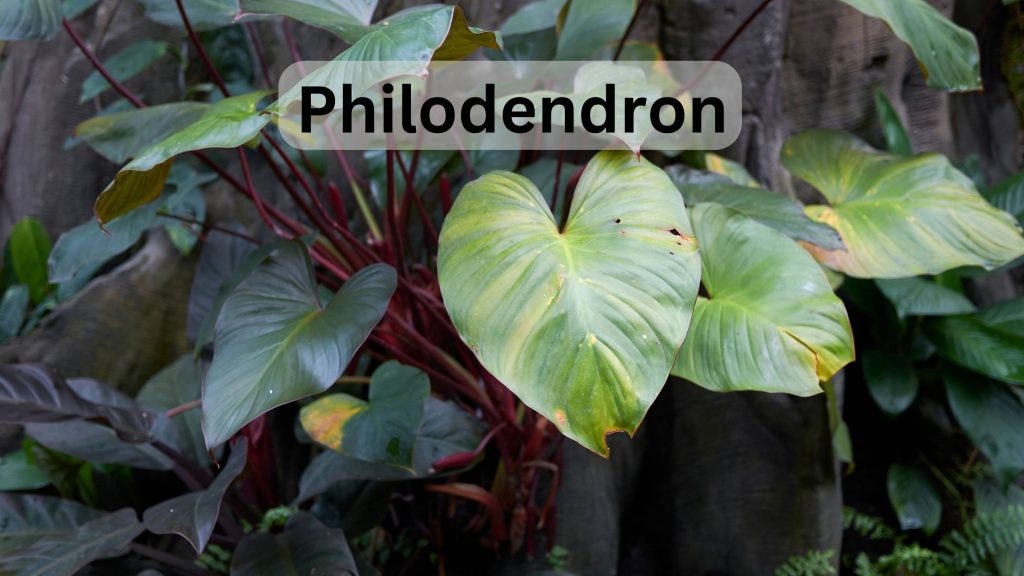
These plants are toxic to betta fish if ingested. The leaves of philodendron contain insoluble calcium oxalates, which can cause irritation and swelling in the mouth and throat of betta fish, making it difficult for them to breathe. In severe cases, ingestion of philodendron can lead to asphyxiation and death.
It’s important to note that philodendron is not toxic when grown hydroponically or in soil separate from the betta fish’s aquarium.
However, if you choose to grow philodendron in the same container as your betta fish, you must ensure the plant is planted so the leaves and roots are not submerged in the water. This is because if the plant is constantly in water, it can rot and release harmful chemicals into the water that can harm your betta fish.
Overall, avoiding planting philodendrons in the same container as your betta fish is recommended to ensure their health and safety. If you notice any signs of illness in your betta fish, such as difficulty breathing or unusual behavior, you should contact a veterinarian immediately.
Water lettuce
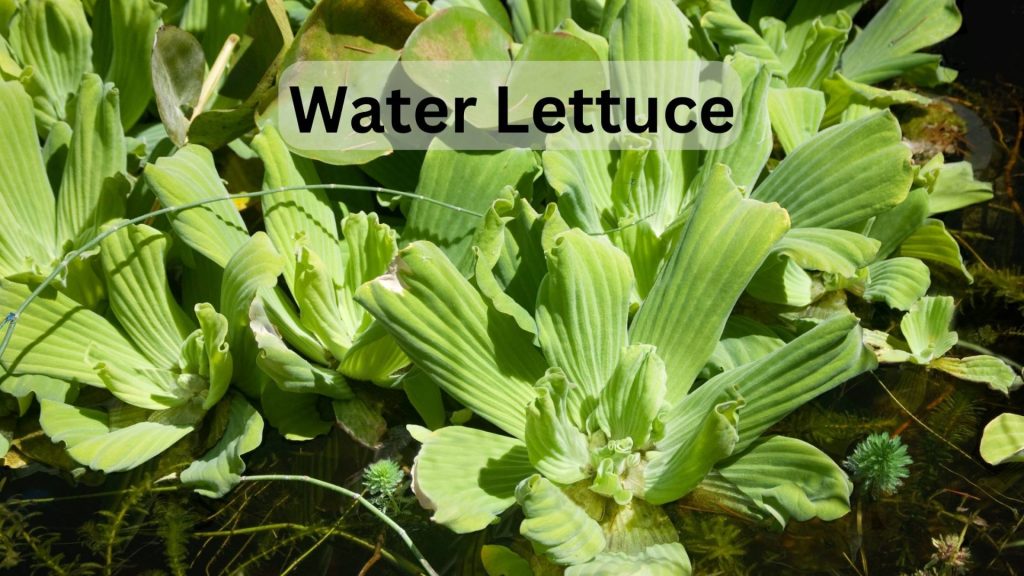
Water lettuce is not toxic to betta fish and can be a beneficial addition to their aquarium. Water lettuce helps to improve water quality by absorbing nitrates and other harmful chemicals. It also provides shade and shelter for betta fish, which can help reduce stress and promote their overall well-being.
However, it’s important to note that water lettuce can grow rapidly and easily take over an aquarium if left unchecked. If the plant becomes too dense, it can reduce oxygen levels in the water and make breathing difficult for your betta fish. Additionally, if the plant begins to rot, it can release harmful chemicals into the water that can harm your betta fish.
To prevent these issues, it’s essential to regularly monitor the growth of water lettuce in your betta fish’s aquarium and remove any excess or dying plant material. With proper care and maintenance, water lettuce can be a safe and beneficial addition to your betta fish’s environment.
Why are these plants toxic for betta fishes?
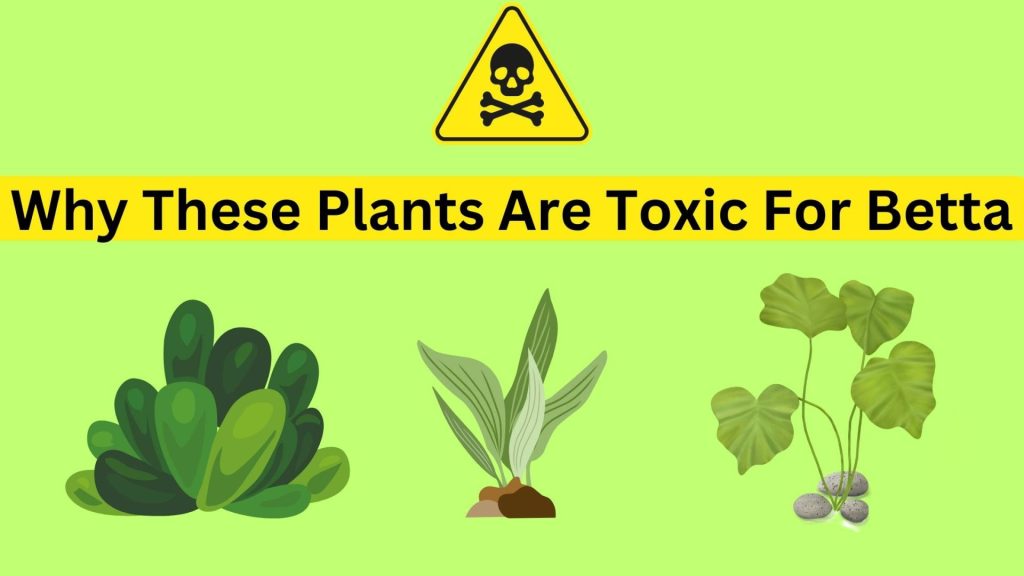
Many plants are toxic to betta fish if ingested and can cause serious health problems or even death. One of the main ways plants can be toxic to betta fish is by containing insoluble calcium oxalates, which can cause irritation and swelling in the mouth and throat, making breathing difficult for them. This can lead to asphyxiation if left untreated.
Other plants may contain other toxic compounds, such as alkaloids, glycosides, or saponins, which can cause a range of symptoms in betta fish, including gastrointestinal upset, vomiting, diarrhea, and even paralysis or death.
Some common toxic plants to betta fish include pothos, dieffenbachia, and philodendron. These plants all contain insoluble calcium oxalates and should not be grown in the same container as your betta fish.
It’s important to research and ensure that any plants you add to your betta fish’s environment are safe and non-toxic. Contact a veterinarian immediately if you notice any signs of illness or unusual behavior in your betta fish.
What types of plants should be kept for betta fishes and why?
Betta fish are tropical fish that require a healthy and vibrant aquatic environment to thrive. Adding live plants to your betta fish’s aquarium can provide various benefits, including natural filtration, oxygenation, and aesthetic appeal.
Some types of plants that are well-suited for betta fish aquariums include:
Java fern
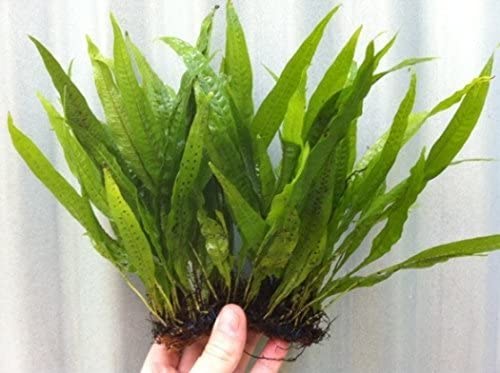
This plant is easy to care for and can be attached to rocks or driftwood in your aquarium. It provides a natural hiding place for betta fish and helps to improve water quality by absorbing nitrates.
Anubias
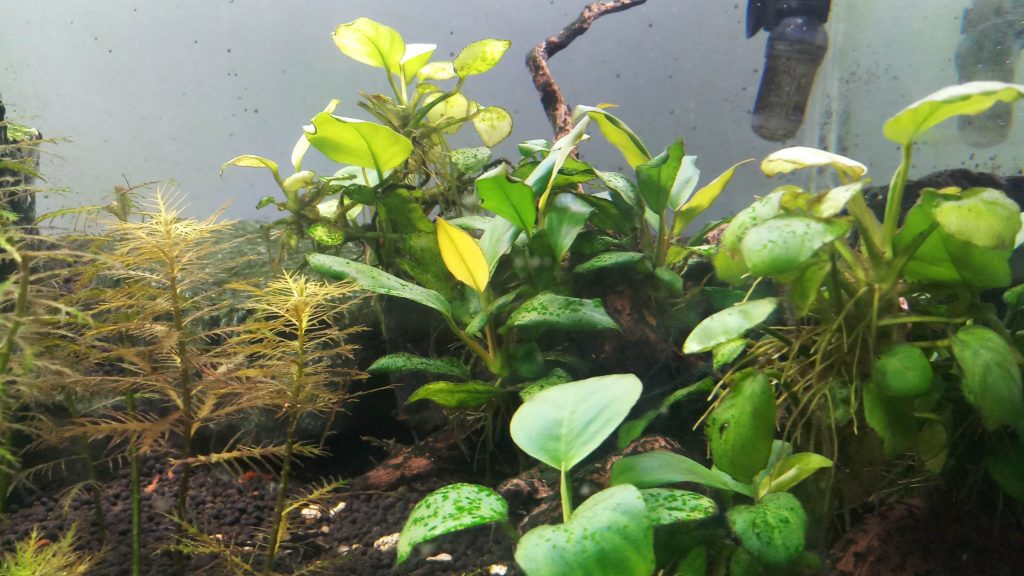
This plant is also easy to care for and can be attached to rocks or driftwood. It provides shade and shelter for betta fish and helps to improve water quality.
Amazon sword
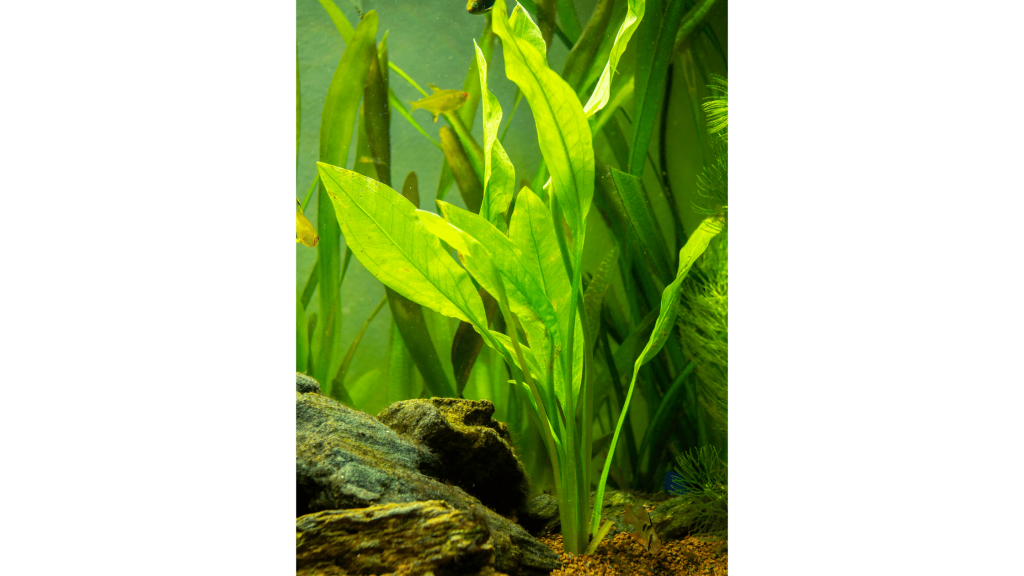
This plant is a good choice for larger aquariums and can help to oxygenate the water. It provides a natural hiding place for betta fish and helps to reduce stress.
Marimo moss balls
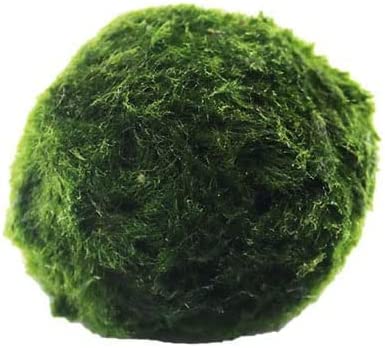
These small, low-maintenance plants can help to absorb nitrates and provide a natural look to your betta fish’s environment.
Adding live plants to your betta fish’s aquarium can create a more natural and healthy environment for them to thrive. Researching and selecting well-suited plants for your aquarium’s size and water conditions is important.
It can provide various benefits, including natural filtration, oxygenation, and aesthetic appeal. Live plants can also create a more natural and healthy environment for betta fish, which can help to reduce stress and promote their overall well-being.
Additionally, live plants can provide shade and shelter for betta fish and even help improve water quality by absorbing nitrates and other harmful chemicals. Overall, adding live plants to your betta fish’s environment can help to create a more vibrant and thriving aquatic ecosystem.
Conclusion
In conclusion, it’s essential to be mindful of the types of plants you add to your betta fish’s environment, as many plants can be toxic if ingested. Insoluble calcium oxalates and other harmful compounds found in certain plants can cause a range of health problems for betta fish, including irritation, swelling, asphyxiation, and even death.
To keep your betta fish healthy and safe, it’s recommended to avoid using toxic plants for betta fish and instead opt for non-toxic plants that can provide natural filtration, oxygenation, and aesthetic appeal to their aquarium. With proper care and maintenance, live plants can significantly add to your betta fish’s environment.
[…] sure in choosing plants, you should avoid some toxic plants from your […]